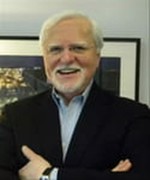Let’s Get ‘Er Done, Church!
- Updated Sep 09, 2015
(If we wait until we can do everything perfectly, we will still be sitting here when the Lord returns. Let us be up and doing.)
“Whatever you do, do your work heartily, as for the Lord rather than for men” (Colossians 3:23).
“Whatever your hand finds to do, do it with all your might” (Ecclesiastes 9:10).
A minister who was interviewing for a position on the staff of my church said, “If I come as your (whatever the position was), I would not make any changes for the first year, but spend that time building relationships.”
That was it for me. We have work to do, I thought. Relationships are good, but they may be built and must be maintained in the midst of doing the work the Lord has given us.
Stephen Dill Lee, well-known Confederate general who later became the founding president of Mississippi State University and served as a deacon at nearby Columbus’s First Baptist Church, once resigned from the church’s deacon board. He said, “When I was in the service, my approach was always to charge, charge, charge. Go forward. But these deacons don’t want to do anything.”
The minutes of the deacons from those years, the early 1900s, indicate that some prevailed upon General Lee and he agreed to stay on. Then, he chaired the church’s building committee that tore down the 1838 sanctuary and built the 1908 edifice which still stands. He was a get ‘er done leader.
“If it’s worth doing, it’s worth doing poorly.” That has always been my philosophy.
Some of us have a running dispute over that little adage. My wife Margaret’s version goes, “If it’s worth doing, it’s worth doing well.” Our friend Annie insists that her approach is, “If it’s worth doing, it’s worth overdoing.”
I imagine that at one time or other, each of those has its application.
Margaret points out that my philosophy–if it’s worth doing, it’s worth doing poorly–seems to endorse shoddy work. To the contrary, it’s saying “Even if we cannot do it perfectly, it’s still worth doing.” I’ve drawn many thousands of cartoons for various publications over a half century, but not a one was perfect. Likewise, I suppose I preached five thousand sermons, all of them flawed in one way or the other. But they were worth doing.
Had I delayed until the cartoon was perfect or the sermon was without some weakness, we’d still be looking for the first one.
Recently, during my reading of several Civil War books, I’ve been struck by a life lesson demonstrated by the generals on both sides of the conflict.
Some generals were accused of inaction, not because they were afraid, but because they were perfectionists. They had to have everything “just right” before engaging the enemy.
General George McClellan seems to have been such a leader. Put in charge of the Federal forces early in the War, he is said to have done a masterful job of planning and preparing his troops, organizing his forces, and inspiring his men. What he did not do well was actually engage the enemy with his armies and win battles.
Despairing of his inaction, President Lincoln pulled together some of the generals to formulate a plan. He commented, “If General McClellan does not want to use the army, I would like to borrow it for a time.”
He was removed and replaced by a succession of leaders until Lincoln found the one he was looking for: General U. S. Grant.
Grant was a “gung ho” fighter. His style contrasted with most of his predecessors (as well as with the Confederate generals) who liked to wage a battle, then pull back and lick their wounds for a time, regroup, reorganize, make new plans, etc. That method of warfare guaranteed that the conflict would go on and on, turning it into a marathon.
Grant’s plan was to keep pressuring the enemy. Once he pulled back to reorganize, you kept coming at him, giving him no respite, no relief, no time to get his people together to formulate new plans. By hounding him relentlessly, you made your enemy deplete his resources and run out of troops, all of which forced the war to an end more quickly.
Eventually, that’s how Grant led his forces to victory over the great Robert E. Lee.
In “Grant Takes Command,” a wonderfully readable volume by eminent historian Bruce Catton, Grant is seen as frequently frustrated by his own generals who would not move until every detail was in place. He would send a courier with a message: “Move out against the enemy tomorrow at sunrise.” The courier would return with the reply: “Unable to comply. The cavalry finds the going slow crossing the swamp. Will not be in place until sunset.”
In World War II, the U.S. Marines gave to the world the expression “gung ho!” Wikipedia identifies this as a corruption of a name for a Chinese organization which originally meant something like “work together” or “work in harmony.” However, the Marines turned it into a battle cry, a spirited call to action. Even today, we speak of certain people as “gung ho” types.
Are there church leaders waiting until all the factors are right before beginning a ministry? They should learn about faith.
By faith Abraham went out not knowing where he was going. By faith Noah built a boat far from the ocean. By faith Moses walked away from Pharaoh’s house without any assurance the Israelites would welcome him in. By faith John the Baptist stood in the desert and began preaching.
James B. Sullivan, leader of Southern Baptists’ Lifeway ministry when it was still called The Sunday School Board, once told of a church in Mississippi whose old minutes he had been reading. Sometime around 1900 they decided to construct a new building. However, they needed more money and chose to wait until they’d raised enough. Then the First World War came along and that was followed by inflation of the 1920s and the Depression of the 1930s, and then the Second World War. The 1950s were unsettled with people moving about the country and the 60s saw racial riots and a loss of confidence in the government and the Viet Nam war. Dr. Sullivan said, “At last report, that church still had not built their building.”
Waiting until all the conditions are just right.
The call to “get ‘er done” in the Lord’s work is based on a number of factors….
–the urgency of the hour.
–the reality of spiritual warfare.
–the need of our loved ones and those in darkness.
–the brevity of life.
–the will of God.
A young man I once knew was trying to establish a ministry in his apartment complex. Interviewed by a reporter, he was quoted as saying he had no intention of telling anyone the gospel of Jesus until he had been there a solid year, that he was trying to build up their confidence in him.
I wrote him a letter.
“My friend, I have been doing such a ministry in my apartment complex in Jackson, Mississippi, and have found that the turnover rate for residents in these establishments is very high. In fact, around 30 percent move in or out every year. I suggest that there is no time for you to enjoy the luxury of ‘earning their trust.’ You need to get on with the business of telling them about Jesus.”
I never heard back from him.
So, what are we waiting for? A better economy? Good weather? All the bad guys to go away? A warm feeling?
The Bible says, “He who watches the wind will not sow and he who looks at the clouds will not reap” (Ecclesiastes 11:4).
Let’s get on with it. Get ‘er done.

















